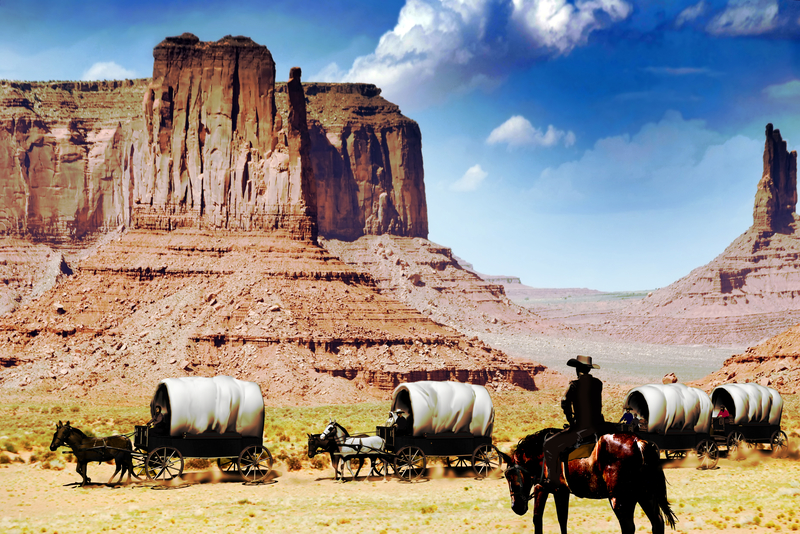One of the most daunting and common tasks for the pioneers was building a house and creating a consistent food source. Even though they could call on their neighbors for help, they didn't have bulldozers, cranes and other large pieces of equipment to do the work for them. The development of these tools below not only shows how smart the pioneers were, but it also demonstrates how far we've come as a human race.
Building and Construction Tools
While some homes were made from sod, many more were made from wood. This made saws and axes both valuable and common. Hatchets and axes did any work that saws couldn’t.
Hammers can split logs (with a wedge, which was another important tool), work metal, break rocks, and, of course, hammer nails.
Shovels, or spades as they once were called, were another fundamental tool. Holes needed to be dug to support log cabins, turf was often used as roofing material, and a spade would be necessary to cut out those blocks.
Farming and Planting Tools
Almost every farmer relied on his plow. John Deere invented the first steel plow blade in 1837, but long before that, people used wood or sharp rocks for plow blades.
Hoes were another invaluable tool for farmers. With a sharp hoe, a person can go at a slow walking pace and remove weeds.
Scythes were great for those who could not afford the mechanical horse drawn crop reapers.
A flail consists of one larger stick that the person would hold, connected by a chain or hooks to a shorter stick. Harvested grain crops, such as wheat, were placed in a pile, and then the person would beat (thresh) the grain with the small stick.
Household Tools
Washboards were, for many years, exactly as the name implies — nothing more than pieces of rounded wood strips, nailed to a frame.
Spinning wheels changed the wool from sheep or cotton balls into fibers that could be used to make clothing and blankets.
Once you had the wheat threshed, you needed to grind it into flour. This was done with a little device that some of us today think of as a meat grinder.
Let’s not forget the lowly needle. They had a much larger variety that was needed. In addition to the regular clothing that needed to be made or repaired, they had to sew their own blankets, in addition to sew horse blankets and leatherwork.
Common tasks were often shared by neighbors or nearby family members. It was not uncommon to see neighbors get together to help build a house for newlyweds or to help out with household chores when a family was sick.
Hunting Tools and Weapons
One of the most useful tools that every pioneer owned was a shotgun.
A hunting knife also was an essential tool, and most pioneers had several of them. It could be used to kill in close quarters, to skin and gut the animal, and to hack off a few branches for wood if necessary.
Hatchets also were sometimes used in self defense. Many pioneers kept both a hunting knife and a small hatchet on their person at all times.
What's one tool you couldn't live without? Were there any tools on the list that you were surprised to see?
Article Source: Off The Grid News

When I was a child, my great – aunt and uncle lived in an authentic log cabin. The well water was pure and sweet, but had to be toted quite aways. The kerosene for the lamps smelled some, but we were able to read by them. The joke on visitors who asked here’s the bathroom was to go pick a tree to get behind. They survived on a very small pension from his devastating injuries from WWI, and their knowledge of the plants and animals around them. It wouldn’t be easy, but it can still be done.
Got to by some horse’s
That would be awesome
One tool missing – an anvil . Tools break or need replacing and the anvil hasn’t changed in centuries . A 50 kg ( 112 lb ) London pattern anvil is good for shoeing horses , making hinges or other fixings and knives , axes and hammers . You can make a forge easily enough but even the professional smiths buy their anvil .
I’ve been living without electricity and running water for more than 10 years. It really is not much of an inconvenience to me. Though I haven’t had a television for the last 15 years, so TV wasn’t something I had to ‘give up’ when I went off grid. Most people would be really surprised at how unnecessary a lot of the electric devices they use are. I get by on a couple of devices that can be charged in my car and a couple that take batteries.